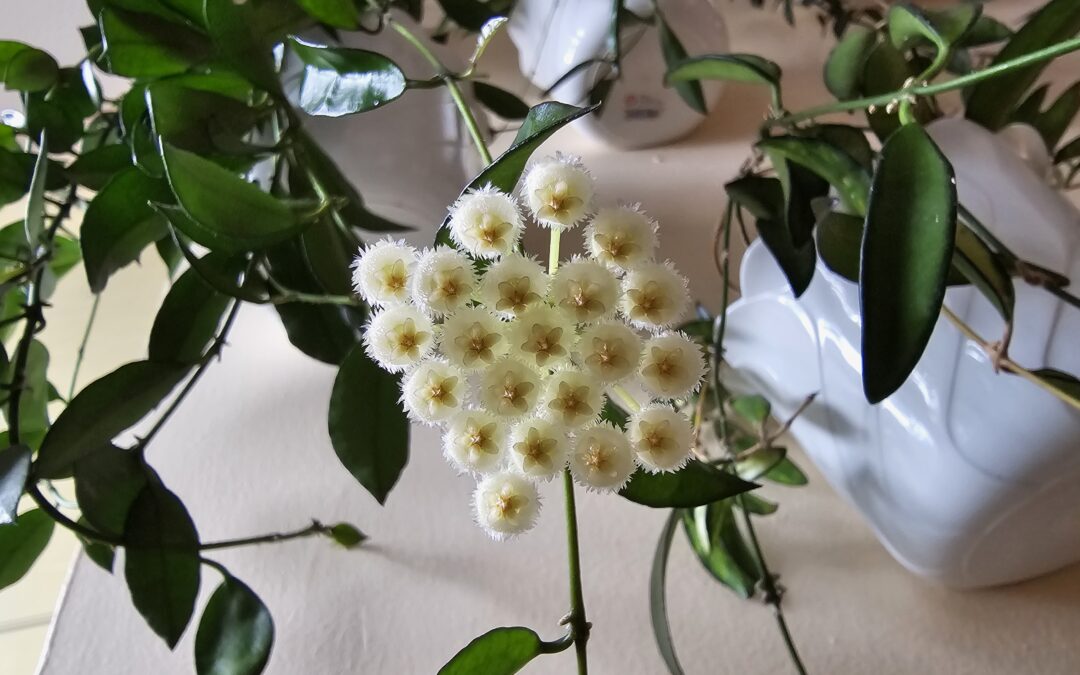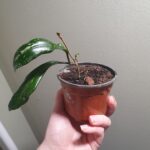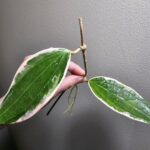Common Hoya Problems described:
Hoyas are generally resilient plants, but like any plant, they can encounter problems. Here are some common issues you might face with Hoyas:
Overwatering: One of the most common problems with Hoyas is overwatering. They prefer to dry out between watering sessions. Too much water can lead to root rot and other fungal issues.
Underwatering: On the flip side, underwatering can also be an issue. While Hoyas don’t like soggy soil, they still need regular watering, especially during the growing season.
Poor Drainage: Hoyas prefer well-draining soil. If the soil doesn’t drain well, it can lead to waterlogged roots and subsequent root rot.
Pests: Common pests that can infest Hoyas include mealybugs, spider mites, and aphids. Regular inspection of the plant can help catch infestations early.
Improper Lighting: Hoyas prefer bright, indirect light. Too much direct sunlight can scorch their leaves, while too little light can lead to leggy growth and fewer blooms.
Low Humidity: While Hoyas are generally adaptable to average indoor humidity levels, they may appreciate slightly higher humidity, especially if you’re trying to encourage flowering.
Nutrient Deficiencies: Hoyas are not heavy feeders, but they still benefit from occasional fertilization during the growing season. Yellowing leaves can indicate a nutrient deficiency.
Temperature Fluctuations: Hoyas prefer relatively stable temperatures. Sudden drops or spikes in temperature can stress the plant and affect its growth and health.
Disease: While not as common as pests, fungal diseases like powdery mildew and bacterial leaf spot can affect Hoyas, especially if they’re kept in overly humid conditions.
Pot-bound Roots: While Hoyas don’t mind being slightly root-bound, excessively crowded roots can lead to stunted growth and decreased vigor. Repotting into a slightly larger container may be necessary occasionally.
Addressing these issues promptly can help keep your Hoyas healthy and thriving. Regular observation and care are key to preventing and managing these common problems.


